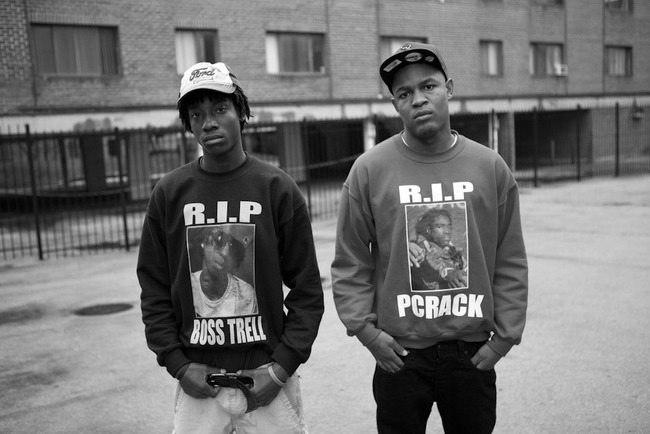The following review was written by Briana A. Williams, a Chicago high school student, as part of Columbia College Chicago’s Columbia Links journalism program for high school students. RogerEbert.com has partnered with the Chicago Urban League and Columbia Links to mentor these students and to give them a platform for their writing. Read more about the program here.–Editor
“Only the Strong Survive” (2012)
Directed by Stevina Hampton
2 out of 4 stars
“Chi Raq” (2013)
Directed by Will Robson-Scott
4 out of 4 stars
“Only the Strong Survive” (2012) and “Chi Raq” (2013) are short films that dive into the problems of people living in some of Chicago’s worst neighborhoods. While the movies explore the same topics, “Chi Raq” is more successful in its delivery because it was shot more professionally and has more depth in the interviews.
“Only the Strong Survive” begins with the sound of gunshots and voices of concerned bystanders, foreshadowing the events to come later in the film. Chicago director Stevina Hampton narrates as she explores Roseland, a South Side community in Chicago plagued by crime and death. She also grew up there. She interviews people who have been let down by the community and those who are attempting to help it. Diane Latiker, founder of the youth outreach program Kids Off The Block, opens her home to teens she doesn’t know and builds a monument on the block to document each fallen child who died too young. She is proof that there are still people trying to save the community.
Although the topic of the film is interesting and the approach is informative, the amateur production values slightly weaken its impact. Throughout most of the interviews, the camera is shaky and there are moments where zooms in and out seem out of place. The focus is blurry in some shots and sharp in others. It would have been nice to see more consistent use of the equipment. Also, the audio is too low or hard to hear because of wind or other background sounds in the film.
“Chi Raq” begins by citing statistics indicating there were more deaths in Chicago in 2001 than in the Afghanistan war zone. This opening sets the tone for the film, directed by Will Robson-Smith, which focuses on gang-related activity in Chicago. The camera work is very professional, and the film was shot beautifully and artistically. The footage intercut with the interviews is raw and real. There is not one moment you would want to miss.
The interviews are direct. Young men share their deep and passionate feelings about being in gangs. One person goes so far to describe exactly what he believes “they” (which in this context more than likely means the police) are doing to get them off the streets. He tells the camera, “We at war with ourselves.” The people being interviewed use a fair amount of profanity throughout the film, but without the language, the film would not be as powerful. The background music is subtle but serious. “Chi Raq” is beautifully shot and well-directed. This film is highly recommended for anyone who wants to know what the term Chi Raq really means.

Briana A. Williams, a junior at Oak Park and River Forest High School, is a fellow of the Columbia Links journalism and news literacy program housed at Columbia College Chicago.











